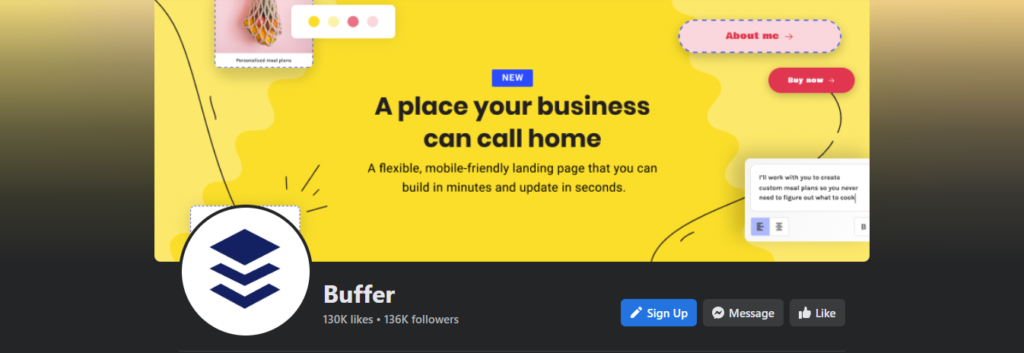Unlocking the Power of Community: A Comprehensive Guide to Optimizing Facebook Groups
In an age where digital connection has become more prevalent than ever, fostering a sense of belonging and community has gained paramount importance. Among the myriad of online platforms, Facebook Groups have emerged as a potent tool for creating, nurturing, and scaling communities with shared interests, passions, or goals. However, harnessing the full potential of Facebook Groups for community building requires careful planning, strategic optimization, and a deep understanding of the dynamics that make these virtual spaces thrive.

Facebook Groups have emerged as a dynamic force in the social media landscape, serving as digital town squares where individuals with shared interests, passions, or objectives gather to connect, converse, and collaborate. From hobbyist enthusiasts discussing their latest DIY projects to niche-focused professionals sharing industry insights, these groups have transformed the way we build and nurture communities online.
However, the potential of Facebook Groups for community building extends far beyond casual conversations and online friendships. When harnessed strategically and optimized effectively, these digital communities can be powerful platforms for businesses, organizations, and individuals alike. They provide a space where engagement thrives, relationships deepen, and collective knowledge flourishes.
In this comprehensive guide, we embark on a journey through the intricate world of Facebook Groups, shedding light on the art of optimization to create vibrant, engaged, and sustainable online communities. Together, we will explore the why, the how, and the what-if of Facebook Groups, delving into the strategies, best practices, and real-world examples that will empower you to build and nurture thriving communities in the digital age.
Why Facebook Groups? The Essence of Community Building
1. Building Authentic Connections
At its core, community building is about forging genuine connections among individuals who share common interests, experiences, or objectives. Facebook Groups provide a digital sanctuary for people to connect on a deeper level, share their stories, and find like-minded peers.
2. Nurturing Engagement
Unlike passive social media platforms, Facebook Groups thrive on active engagement. Members are encouraged to participate, ask questions, share insights, and provide support. This dynamic interaction fosters a sense of belonging and investment in the community.
3. Targeted Communities
Facebook Groups can be precisely tailored to address specific niches or topics, making them invaluable for businesses, organizations, and individuals looking to engage with a highly targeted audience.
4. Facilitating Knowledge Sharing
Groups serve as knowledge hubs where members can learn from one another, seek advice, and gain insights. This peer-to-peer learning fosters personal growth and collective advancement.
Optimizing Facebook Groups for Community Building

1. Defining Your Group’s Purpose and Identity
The foundation of a successful Facebook Group lies in a clear and compelling purpose. Before launching, define the group’s mission, values, and identity. What will members gain by joining? What rules and guidelines will shape the community culture?
2. Inviting the Right Members
Quality over quantity is the golden rule here. Inviting members who align with your group’s purpose and values ensures a cohesive community. Leverage your existing network, promote the group on your page, and use targeted keywords to attract like-minded individuals.
3. Creating Engaging Content
Content is the lifeblood of any Facebook Group. Share valuable articles, host discussions, and encourage members to post content relevant to the group’s interests. Use multimedia, such as images and videos, to make posts more engaging.
4. Fostering Active Participation
Actively engage with members to keep discussions lively. Respond promptly to questions and comments, and encourage members to share their insights and experiences. Regularly prompt discussions by asking questions or posting polls.
5. Setting Clear Guidelines and Moderation
Clearly communicate the group’s rules and guidelines to maintain a positive and respectful environment. Appoint moderators to enforce these rules and handle conflicts promptly and diplomatically.
6. Leveraging Facebook Group Features
Explore Facebook Group features like Units, which allow you to organize content into structured courses or resources. Utilize Events to schedule webinars, Q&A sessions, or virtual meetups.
7. Encouraging Member-Generated Content
Empower members to contribute by creating a space for member-generated content. Encourage them to share their stories, experiences, and expertise within the group.
Real-Life Examples of Optimized Facebook Groups
1. Buffer Community

Buffer, a social media management platform, has created a thriving Facebook Group where marketers and social media enthusiasts gather to discuss trends, share insights, and troubleshoot challenges. The group’s clear purpose and active moderation have contributed to its success.
2. Travel Bloggers Network
The Travel Bloggers Network is an example of a niche-focused group. It unites travel bloggers worldwide, providing a platform for collaboration, networking, and knowledge sharing. The group’s targeted nature fosters deep engagement among members.
3. DIY Crafters Community

This community serves as a hub for DIY enthusiasts to showcase their creative projects, seek inspiration, and exchange crafting tips. Its emphasis on member-generated content fuels its vibrancy.
Conclusion: Building Thriving Communities in the Digital Age
In the digital age, fostering a sense of community is not just a goal but a necessity. Facebook Groups offer a powerful avenue for creating meaningful connections, facilitating knowledge exchange, and nurturing engagement. By optimizing your Facebook Group with purpose, quality, and active participation, you can unlock the full potential of these virtual communities.
Remember that the journey to community building is an ongoing one. Consistent effort, active engagement, and a genuine commitment to your group’s purpose will pave the way for a vibrant and enduring online community. As you embark on this journey, you’re not just creating a Facebook Group; you’re nurturing a space where people connect, grow, and thrive together.

